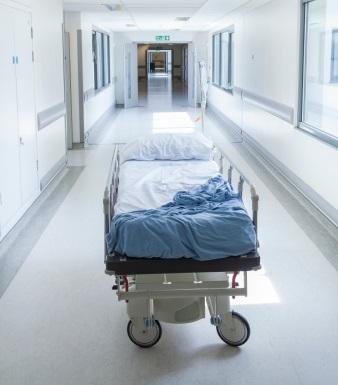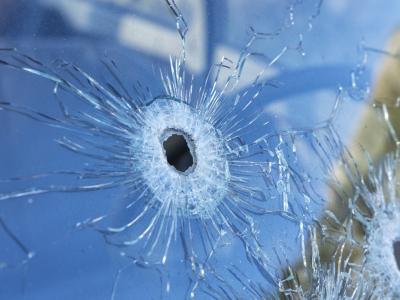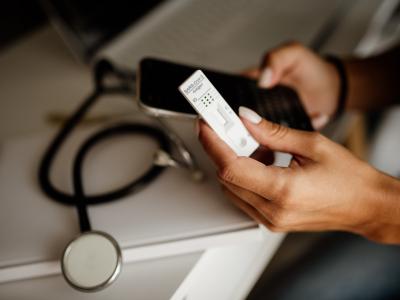The World Health Organization (WHO) today confirmed that four of Jordan's recent MERS-CoV cases are part of hospital-linked outbreak, the third country since May to report such an outbreak, as Saudi Arabian officials announced four more cases in Riyadh.
In South Korea, where a hospital-based outbreak in May in June sickened 186 people, health officials today announced a new plan for preventing similar outbreaks in the future, with steps to discourage frequent visits among different hospitals and curb exposures among visitors.
Hospital visitors ill in Jordan
After an 8-month pause in cases, Jordan has reported six MERS-CoV (Middle East respiratory coronavirus) cases since Aug 24, according to media reports. The first involved a 60-year-old man who had traveled from Saudi Arabia, was hospitalized, and died on Aug 27 from his infection. Though details are scarce, some of the reports hinted at possible healthcare-related exposures.
In a statement today, the WHO confirmed that four cases reported from Jordan between Aug 26 and Aug 28 are part of a MERS-CoV outbreak at a hospital in Amman. The index patient, the 60-year-old man, was from Jeddah, Saudi Arabia, and had traveled to Amman on Jul 28.
His symptoms began on Jul 31, and he was hospitalized on Aug 10. The man was discharged on Aug 18, but was hospitalized at another facility 2 days later after his symptoms returned.
An investigation is still under way into how the man was exposed to the virus in the 14 days before he started having symptoms.
The second patient is a 38-year-old man from Kuwait City who traveled to Amman on Aug 7, then developed symptoms 5 days later. Media reports had said only that the man traveled "from abroad." He was hospitalized on Aug 17 in the same facility where the index case was treated. The Kuwaiti man's only other known risk factor was that after he arrived in Amman he frequently visited a family member who was being treated at the same hospital. The WHO said he is in critical condition.
The third patient is a 76-year-old man from Amman who was hospitalized three different times at the same facility at which the first patient was hospitalized for treatment of a chronic health condition. The first time (Aug 16) was for his chronic health condition, the second (Aug 20) was for a procedure related to his underlying health issue, and the third (Aug 25) was after he started having MERS-CoV symptoms, according to the WHO.
The man is in critical condition, and investigators are exploring possible links to other MERS cases or shared healthcare workers.
Meanwhile, the fourth patient is a 47-year-old woman from Kuwait City who traveled to Amman on Jul 15. As a contact of the second patient, the man from Kuwait City, the woman tested positive for MERS-CoV on screening tests. She is asymptomatic and is in home isolation. Her only other known risk factor is that she visited family members at the hospital where the index patient was being treated.
In addition to the four cases, Jordan announced two additional ones on Aug 30 and Aug 31, according to earlier media reports. One involves a 56-year-old Jordanian man who reportedly got sick with MERS-CoV after undergoing open-heart surgery. The other is a 74-year-old woman who has pre-existing medical conditions.
MERS sickens 4 more in Riyadh
In Saudi Arabia, which is experiencing an outbreak in Riyadh centered at King Abdulaziz Medical City, the country's Ministry of Health (MOH) today reported four more cases, all in the capital.
Three of the illnesses are likely linked to the hospital outbreak: One had contact with another MERS case, and contact for two patients is under review. A fourth Riyadh patient apparently didn't have contact with an earlier case. None of them are healthcare workers.
All of the patients—three men and one woman—are adults ages 31 to 51. Three are Saudi citizens and one is a foreign national. Three are hospitalized in stable condition and one is listed as critical.
The MOH said 54 people are still being treated for MERS-CoV infections, and an additional 11 patients are in home isolation.
Two more patients have recovered, raising the total since the virus was first detected in 2012 to 612.
One more patient died from MERS-CoV, a 30-year-old Saudi woman from Riyadh who had underlying medical conditions. The latest cases and death lift Saudi Arabia's totals from the disease to 1,188 cases, including 510 deaths.
New prevention steps in Korea
In the wake of a large hospital MERS outbreak in May and June that sickened 186 people, 36 of them fatally, South Korean health officials today announced a plan to better manage infectious diseases, the Korea Herald reported.
As part of the announcement, the Ministry of Health also announced administrative moves that would better position the Korea Center for Disease Control and Prevention to strengthen public health policy and form an around-the-clock emergency operations center to flag possible epidemics.
Some of the steps were aimed at unusual features that helped fuel South Korea's outbreak, such as the cultural practice of visitors caring for family members and patients visiting multiple hospitals for treatment. For example, the government said it will introduce full-time nursing care in as many hospitals as possible. Currently, South Korea has a national nursing staff shortage.
The health ministry also announced it will start charging fees to people who request to see doctors at general hospitals without referrals from physicians at smaller clinics.
Other measures included ensuring that general hospitals with 300 or more beds have negative-pressure rooms and hiring 64 more epidemiologists over the next 3 years, according to the report.
See also:
Sep 1 WHO statement
Sep 1 Saudi MOH statement
Sep 1 Korea Herald story




















